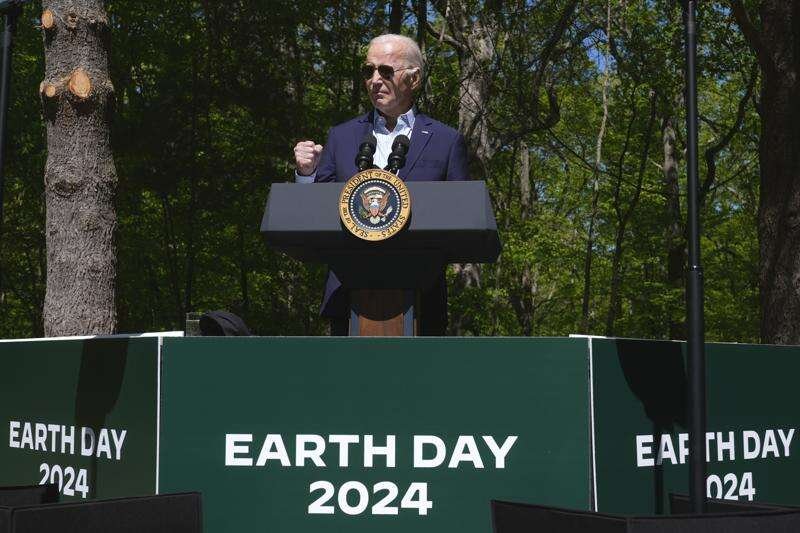President Joe Biden unveiled a substantial investment of $7 billion in grants for residential solar projects during a speech at Prince William Forest Park in Triangle, Virginia.
In celebration of Earth Day 2024, President Joe Biden unveiled a substantial investment of $7 billion in grants for residential solar projects during a speech at Prince William Forest Park in Triangle, Virginia. The initiative aims to power nearly a million low-income households across the United States, marking a significant step in the Biden administration’s commitment to combating climate change.
The announcement serves as the cornerstone of a week-long series of activities designed to highlight the administration’s dedication to environmental issues. Addressing the audience, President Biden emphasized the importance of these efforts in mitigating climate change’s impact on communities.
Included in the $7 billion allocation is funding for the Environmental Protection Agency’s Solar for All grant competition, a key provision of Biden’s landmark climate legislation, the Inflation Reduction Act. The initiative is projected to generate 200,000 jobs while providing participating households with an estimated annual saving of $400 on energy bills.
“Solar for All will give us more breathing room and cleaner breathing room,” remarked President Biden, underscoring the financial burden that energy costs place on low-income families, who often allocate a significant portion of their income toward utility expenses.
The recipients of these grants comprise 60 state and local agencies, as well as non-profit organizations dedicated to assisting residents in underserved communities in adopting solar energy solutions. Notably, several initiatives are earmarked to provide solar access to Native American households across states such as Alaska, Arizona, New Mexico, and Colorado.
Residential solar adoption among low-income Americans has historically faced challenges due to the high initial investment and barriers associated with renting or residing in multi-unit buildings. The Solar for All program aims to address these disparities by facilitating access to clean energy resources for disadvantaged communities, aligning with President Biden’s commitment to directing 40% of federal clean energy investments toward such areas.
In tandem with the solar grants, President Biden unveiled the American Climate Corps, a program designed to equip young people with the skills necessary for careers in climate-related industries. The initiative, which will offer over 2,000 positions across 36 states, Washington, D.C., and Puerto Rico, aims to train participants in areas such as solar panel installation, methane emission detection, and ecosystem restoration.
Participants in the Climate Corps will benefit from pre-apprenticeship training through partnerships with organizations like the North America’s Building Trades Unions, as well as streamlined pathways to federal employment opportunities.
“I will put tens of thousands of young people to work at the forefront of our climate resilience and clean energy future,” President Biden affirmed, emphasizing the pivotal role of the next generation in addressing environmental challenges.
Meanwhile, on the same day, independent presidential candidate Robert F. Kennedy Jr. held an Earth Day event, advocating for environmental stewardship during a virtual campaign gathering. Kennedy, accompanied by his running mate, tech lawyer Nicole Shanahan, faced criticism from environmental organizations, including the National Resources Defense Council Action Fund and Sierra Club, for his past statements on environmental issues.
Kennedy’s campaign refrained from directly addressing the criticism, focusing instead on his platform’s commitment to environmental preservation and public engagement.
As Earth Day 2024 activities unfold across the nation, President Biden’s announcement about residential solar projects signals a concerted effort to prioritize environmental sustainability and equity in federal policymaking, setting a precedent for future initiatives aimed at combating climate change.
